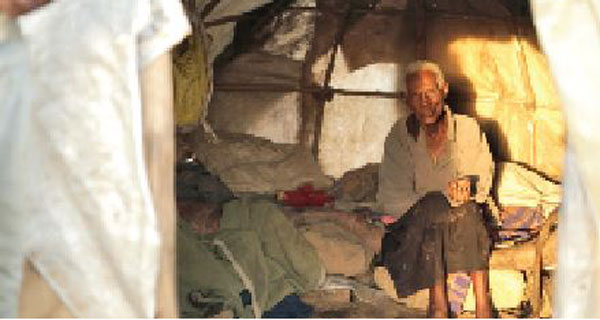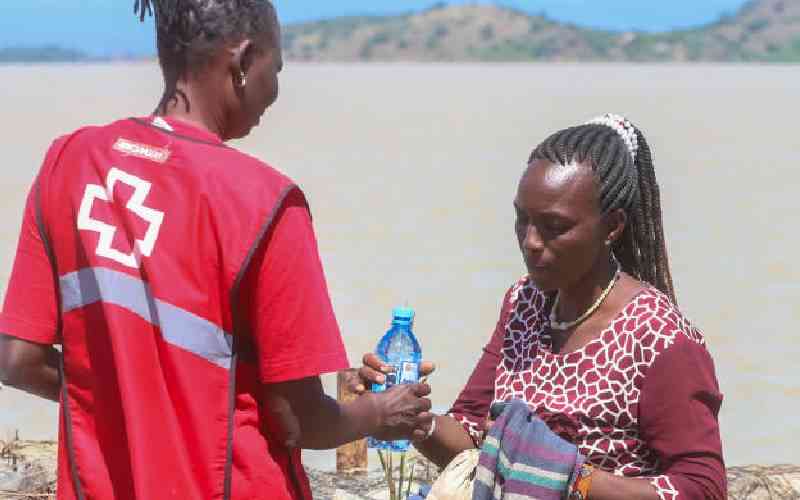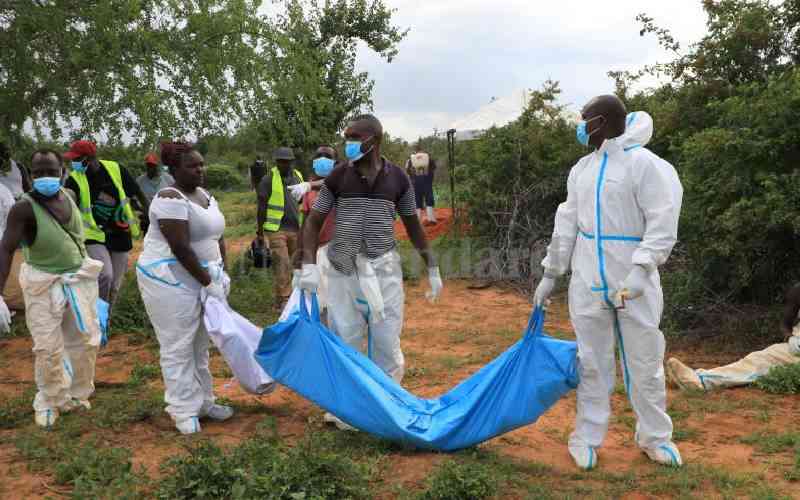 |
|
The late Naomi Waitherero Mwangi at Mwihang’iri IDP camp in Naivasha. [PHOTO: CHARLES OUKO] |
By CHARLES OUKO
Kenya: I write this story with a heavy heart, hours after attending the burial of Naomi Waitherero Mwangi. The 90-year-old woman breathed her last on February 27, 2014 in her “home” at an informal camp for internally displaced persons (IDPs) in Naivasha.
Speaking during her funeral, Robert Mendonsa, the founder of the camp, reminded the small congregation present of the many instances when Jesus was “moved with compassion” at the suffering of others.
However, looking at the squalid conditions in which Naomi ended her earthly journey, I could not help but feel that nothing moves Kenyans, and especially our leaders, anymore and that we all need a serious lesson in compassion.
Naomi’s village, a US-funded childrens’ charity, underwrote the bulk of the costs of her funeral.
Naomi, who was one of the over 500,000 people dislodged from their homes by the 2007 post-election violence, lived in several IDP camps before settling at Mwihang’iri where she died.
At Mwihang’iri — a Kikuyu word which means ‘the one who fends for himself or herself’ — the old woman lived inside a six-by-six feet tent that had seen better days and slept on the dusty floor on a threadbare mattress.
Every day she hoped that her able-bodied neighbours in the camp would return home with some food and share it with her.
When it rained, she was equally at the mercy of the elements as her tattered tent offered little protection.
Ironically, amidst all these suffering, Naomi prayed and hoped that one day it would come to an end and that life would be much better.
Sad twist
All indications were that her dreams would be fulfilled after six years of waiting. Already, there were plans to build her and her fellow IDPs decent houses. Canaan was indeed beckoning.
However, fate seemed determined to chart a different course for the elderly woman. A year ago, her life took a sad twist when she suffered a stroke, which paralysed her from the waist down.
This rendered her completely immobile and she could not even venture out of her tent to answer calls of nature. She would lie on her own excreta and urine for hours, and sometimes overnight, until a fellow camp resident would help her out of the mess.
As I sat there, listening without hearing to the mournful dirges of Mwihang’iri IDPs and the preacher’s homily, many thoughts went through my mind. I asked myself many questions, most which I could not answer.
Stay informed. Subscribe to our newsletter
Why would a country allow its people to stay in an IDP camp for six long years in a peaceful country?
Although many IDPs have been resettled, many others remain displaced from their original homes. I could not think of a sadder indictment of a country’s leadership than failure to provide shelter and security to its citizenry.
But the Government is not solely to blame. Whereas we do not have many elderly people’s homes, like the Western countries, we have a long history of extended family systems that ensure that the Naomis in our midst end their earth’s sojourn in dignity.
Africans by nature value elderly people and many of us who make our homes in urban areas occasionally cart our offsprings to our rural homes during the holidays.
During such visits, the elders give the young ones invaluable lessons on good manners, and help preserve our rich heritage of many admirable customs and traditions.
However, with many youths adopting the so-called Western values mainly through the ever-evolving media, there has been a gradual breakdown of the old order.
But that, in my opinion, still is no excuse for the manner in which Naomi and many elders spend their twilight years.
As I watched IDPs placing Naomi’s coffin over stones and planks of wood during the funeral, I realised that we have done a great disservice to her generation.
Corruption
The now aging Naomis spent hundreds of hours teaching us the virtues of loving and caring for each other, but we have neglected them at their hour of need.
As I watched tearful IDPs lowering her casket down her grave, I remembered the scores of corruption scandals that have robbed this country of billions of shillings, money that would have been used to fulfil Naomi’s dreams.
But according to two pastors who presided her burial, although the world had shattered Naomi’s life and earthly ambitions, her death had opened a door to better things. The priests said the woman had a “personal relationship with Jesus Christ” and hope of a better home in heaven.
Although she missed her dream house and life here on earth, the pastors were convinced that she would live in eternal bliss in heaven where no IDP camps, torn tents and debilitating diseases existed.
 The Standard Group Plc is a
multi-media organization with investments in media platforms spanning newspaper
print operations, television, radio broadcasting, digital and online services. The
Standard Group is recognized as a leading multi-media house in Kenya with a key
influence in matters of national and international interest.
The Standard Group Plc is a
multi-media organization with investments in media platforms spanning newspaper
print operations, television, radio broadcasting, digital and online services. The
Standard Group is recognized as a leading multi-media house in Kenya with a key
influence in matters of national and international interest.
 The Standard Group Plc is a
multi-media organization with investments in media platforms spanning newspaper
print operations, television, radio broadcasting, digital and online services. The
Standard Group is recognized as a leading multi-media house in Kenya with a key
influence in matters of national and international interest.
The Standard Group Plc is a
multi-media organization with investments in media platforms spanning newspaper
print operations, television, radio broadcasting, digital and online services. The
Standard Group is recognized as a leading multi-media house in Kenya with a key
influence in matters of national and international interest.









